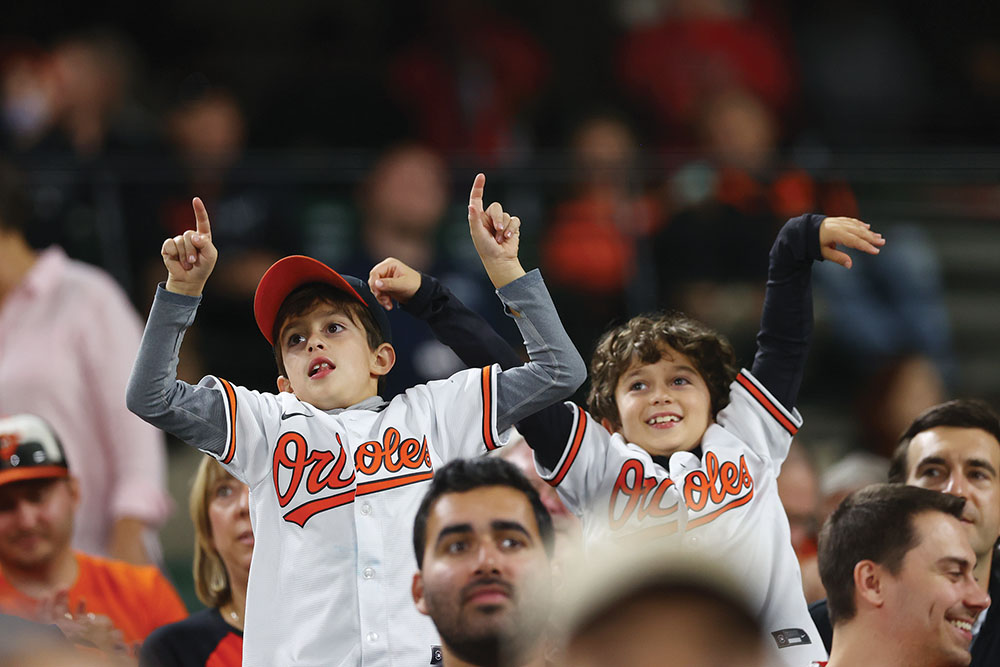This month marks two years since my bombshell cancer diagnosis. In the immediate aftermath, I worried about how to tell the kids — or, rather, to NOT tell them, to seemingly protect them until we knew more. But secrecy proved exhausting, added tension and compelled the kids to concoct their own explanations for closed-door talks, post-crying eyes and vague “appointments.” My preschooler was fairly clueless, but my preteen suspected I was pregnant, and my teenager concluded we were divorcing. Clearly, things weren’t handled well.
 Here are some pointers I hope you’ll never need about how children process news of a parent’s serious illness. In addition to my own experience, I draw on the wisdom of Wanda Harrison, LCSW-C, clinical program manager at HopeWell Cancer Support, who found her career calling after her sister’s cancer turned her nephew’s and niece’s world upside down; and Jill Mull, education and outreach patient navigator at Johns Hopkins Kimmel Cancer Center and a cancer survivor herself who had young twins when diagnosed.
Here are some pointers I hope you’ll never need about how children process news of a parent’s serious illness. In addition to my own experience, I draw on the wisdom of Wanda Harrison, LCSW-C, clinical program manager at HopeWell Cancer Support, who found her career calling after her sister’s cancer turned her nephew’s and niece’s world upside down; and Jill Mull, education and outreach patient navigator at Johns Hopkins Kimmel Cancer Center and a cancer survivor herself who had young twins when diagnosed.
Give it to them straight up
When it comes to the best way to tell kids, the verdict is unanimous: Be honest.
“Tell them the facts as you know them: what the illness is, what the treatment will be, and how it may affect their lives,” Harrison says. Younger kids want to know their immediate needs will still be met (“Who will make my grilled cheese?”). Older children may project ahead with worries (“What will I do if you die?”).
Mull wholeheartedly agrees with open communication. “Children have such an awareness of the world around them, especially when there is a deviation from the norm in their home. It will lower their anxiety to talk about the illness, and may diminish fears and promote feelings of security.” If you need a prompt, there are books for all ages that can help start these conversations, Mull says.
Family meetings (convened by any member) are a great setting to voice concerns and share updates. But some kids may prefer a one-on-one talk. Underscore that “this is a family crisis, and we will deal with it together, supporting each other,” Harrison says.
Let them guide how much they want to know
In my household, once we explained the diagnosis, reactions varied widely. My teen declared it was not a big deal, would be fine, end of discussion. Middle wanted ALL the info, immediately terrifying herself with Google searches. Little guy was unfazed, happily binging on electronic distractions, but once treatments started he decidedly disapproved of hospital stays, lifting restrictions and my ridiculous new hairdo.
“Age makes a difference in how much is too much information,” Mull says. “Start with the basics, answer questions and revisit it at different points during treatment.” Kids need to know that they can ask anything and will be answered to the best of your ability, Harrison says. “If you don’t know the answer, don’t be afraid to say that.”
Include your child in the care plan
Kids may want to come along to appointments, meet doctors or see treatment rooms. Taking away the mystery is a powerful coping tool. My tween daughter came with me to a chemo infusion. It pulled back that curtain and let her see it wasn’t as scary as she’d imagined. When my hair started falling out, I let her cut it (a hilarious hack job!) before we used the clippers.
Mull suggests giving children jobs to make them feel like they are helping. “Make it fun, start a new routine like ‘backwards night’ where the child reads to the parent at bedtime.” Empower kids by assigning them a special role — even simply giving extra hugs.
Keep it real
Don’t lie or make promises you can’t keep. It doesn’t help to say, “I’m OK,” when your body language says something else, Harrison says. You’re not fooling them.
We can’t shield kids from the situation, but we can help instill confidence and coping skills. “Kids need to know they did not cause it, it’s not contagious, and their needs will be taken care of,” Harrison says. She cautions that some parent-speak (“You’re giving me a headache!”) makes younger children fearful they contributed to the illness. Older kids may feel like they can’t come to you with their own problems because you have enough to deal with. Don’t let them retreat into isolation.
Keep tabs on how they are managing
Harrison reminds parents to be aware of changes in their children’s sleep, interactions or school performance. Point out the differences (“I notice you haven’t been playing with your friends lately,” etc.) and generate discussion. Sometimes we have to help kids identify what they are feeling. What presents as anger might be frustration or fear. That “tummy ache” may be anxiety. Kids need to know that all feelings are valid. Give a heads-up to the school counselor, teachers, coaches and friends’ parents who can be extra eyes on your child.
Resources for help
Harrison facilitates HopeWell’s Kid Circle and Teen Circle support groups. In today’s overscheduled world, some parents want to maintain the “normalcy” of practices and pastimes, so it can be hard to sustain a group for the six-week sessions. But carving out regular space for therapy is important. Activities such as journaling, art and meditation also can help.
When it comes to processing a parent’s illness, the hardest-hit age is teens, according to Harrison. “If they come to group, they will engage,” she says of therapy. “But even if they avoid the topic directly, there is a comfort and unspoken camaraderie among people facing the same troubles being in the same room.”
The situation stinks. But it also presents relationship growth opportunities — to strengthen trust, reinforce bonds, foster maturity and create confidence — particularly with tweens and teens. Despite the instinct to shield children from scary news, know that in weathering the storm as a family, we all learn important lessons about courage, resilience and love. BC









